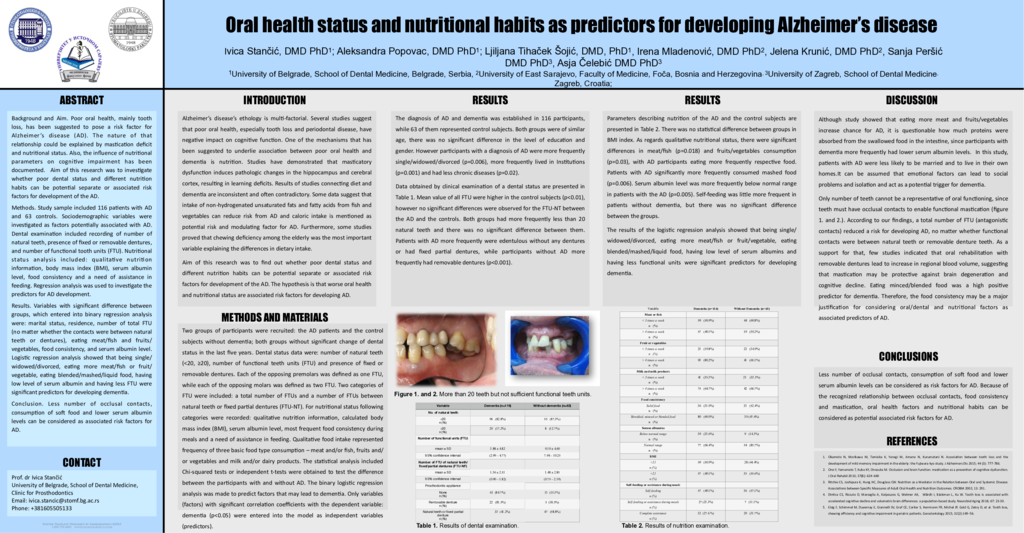Background and Aim: Poor oral health, mainly tooth loss, has been suggested to pose a risk factor for Alzheimer’s disease (AD). The nature of that relationship could be explained by mastication deficit and nutritional status. Also, the influence of nutritional parameters on cognitive impairment has been documented. Aim of this research was to investigate whether poor dental status and different nutrition habits can be potential separate or associated risk factors for development of the AD. Methods: Study sample included 116 patients with AD and 63 controls. Sociodemographic variables were investigated as factors potentially associated with AD. Dental examination included recording of number of natural teeth, presence of fixed or removable dentures, and number of functional tooth units (FTU). Nutritional status analysis included: qualitative nutrition information, body mass index (BMI), serum albumin level, food consistency and a need of assistance in feeding. Regression analysis was used to investigate the predictors for AD development. Results: Variables with significant difference between groups, which entered into the binary regression analysis, were: marital status, residence, number of total FTU (no matter whether the contacts were between natural teeth or dentures), eating meat/fish and fruits/vegetables, food consistency, and serum albumin level. Logistic regression analysis showed that being single/widowed/divorced, eating more meat/fish or fruit/vegetable, eating blended/mashed/liquid food, having low level of serum albumins, and having less FTU were significant predictors for developing dementia. Conclusion: Less number of occlusal contacts, consumption of soft food and lower serum albumin levels can be considered as associated risk factors for AD.
- 48 views



